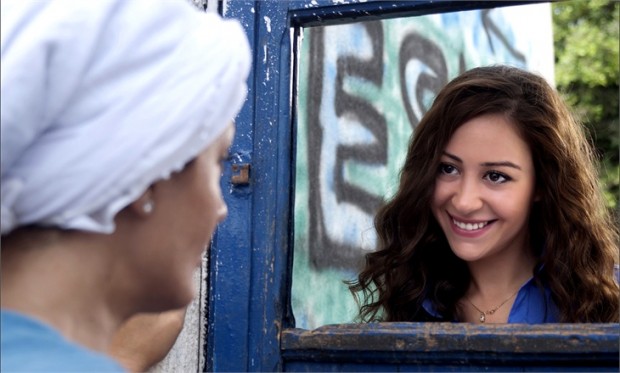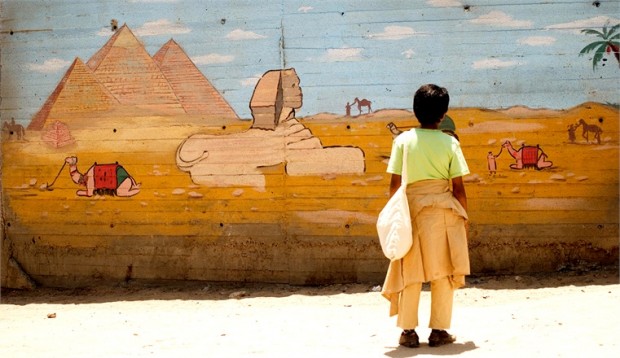Political debates can be well worth the time and aggravation they take up, both educating and challenging each participant to think about important topics in new and exciting ways. To see the other side of an opinion and consider it, if only for a moment. Go back as far as Plato, farther even, and you will find the general conceit is that discussion leads to decision, and so on and so forth.
Egyptian filmmaker Yousry Nasrallah hopes to extend a political discussion to the ends of the earth with his new film Baad el Mawkeaa (After the Battle), and it’s a discussion well worth having. Unfortunately, the story his beloved issues are wrapped in is not quite worth telling.

Revolving around what is now known as the Battle of the Camel, Nasrallah paints a portrait of a fully-realized Egypt, one in which traditional culture and a new, more democratized way of living are thrown together in the midst of a constantly-revolutionizing political state.
Maumoud (Bassem Samra), a simple horseman, quite literally lives at the center of it all, right outside Tahrir Square, where the protest that came to be the Battle of the Camel takes place. The event – which opens the film, deftly combining archive footage with newly-shot reenactments – pitted anti-government rebels against believed supporters of the then-President Mubarak, some said Mubarak supporters riding on horses and camels with weapons. Maumond, duped by the local, Mubarak-supported gangsters in his slum, joins the horse-riding supporters only to get violently assaulted by the rebels and consequently humiliated in his community.
Salvation comes in the form of the beautiful Rim (Mena Shalaby), a young, modern woman with progressive tendencies who falls for Maumoud’s tale of woe, resulting in a stolen kiss in a crowded nightclub. Determined to make right Maumoud’s reputation, Rim begins spending more time in Nazlat, the slum where Maumoud and his family live. The significance of the slum comes from its proximity to the Great Pyramids. While there was once a market for the people in Nazlat in exploiting the tourists who visited said the pyramids – Maumoud’s horseman profession is a euphemism for tourist trap – Mubarak had a wall built separating the slum from the grand locales.

And while all of this interesting, Nasrallah never molds all of these pieces together in a cohesive or engaging way. While the pronounced lack of chemistry between Samra’s Maumoud and Shalaby’s Rim hurt the credibility of the activist’s early motivations, the constant political discussions she instigates eventually drown the rest of the film. This is not a star-crossed love affair, nor a politically-charged thriller. At its purest, this is a family drama in which the most direct protagonist, Rim, is not a member of the family.
Though Samra is meant to share lead duties with Shalaby, he fails to the proper pathos in his conflicted family man, Maumoud ultimately coming off as more bullheaded than anything else. And while one must acknowledge Nasrallah’s bravado in building his narrative around such a traditional, backward-looking character (and, in doing so, presumably staying true to the region he is portraying), Samra is the wrong actor for the job.
Save a superb final shot accenting the forever-ness of the heavenly pyramids Maumoud now looks at with regret, Nasrallah shows little excitement in framing, each scene more stilted than the next.
Egypt deserves a film that explores its social and political complexities. A better film than this.

